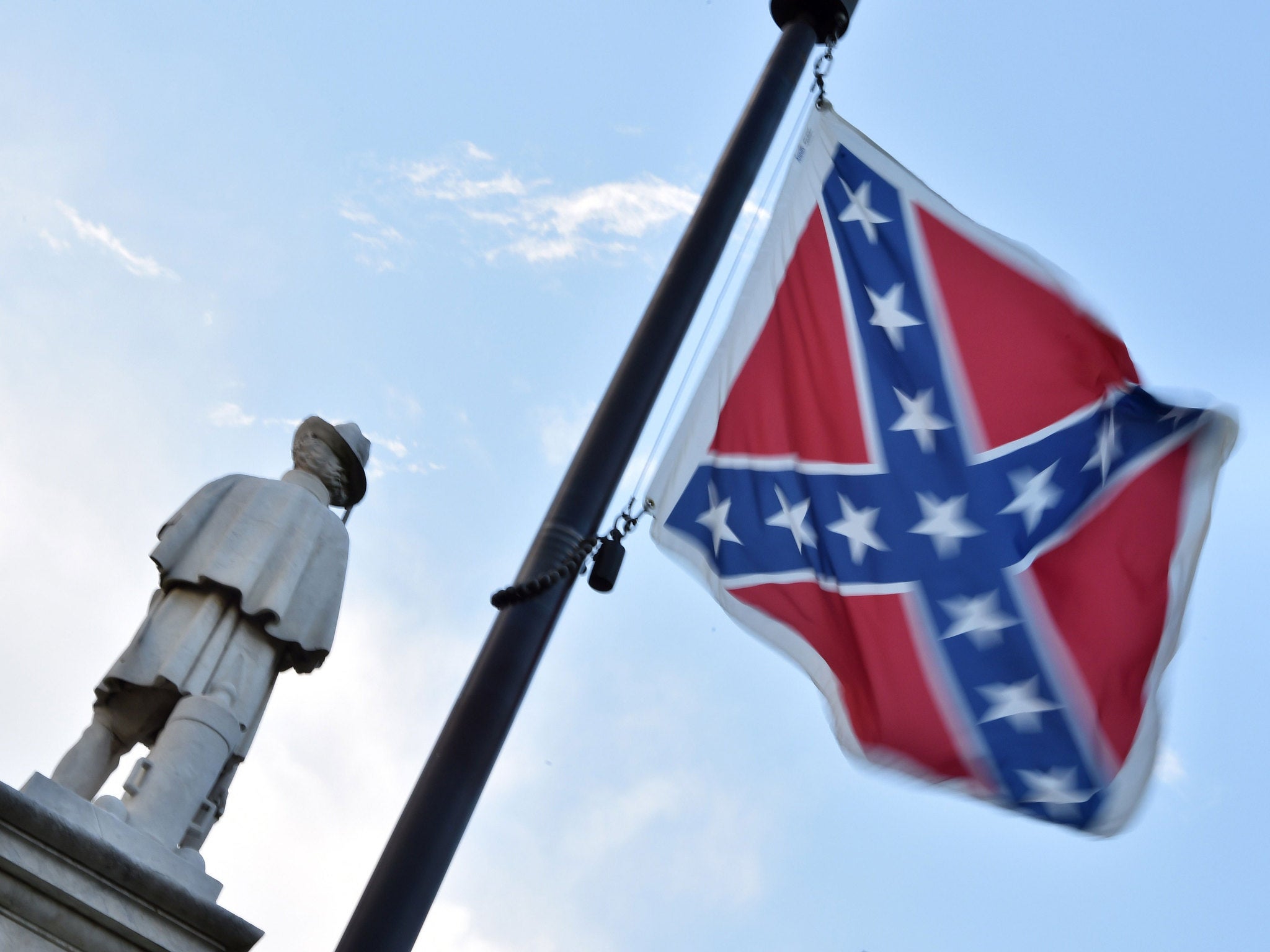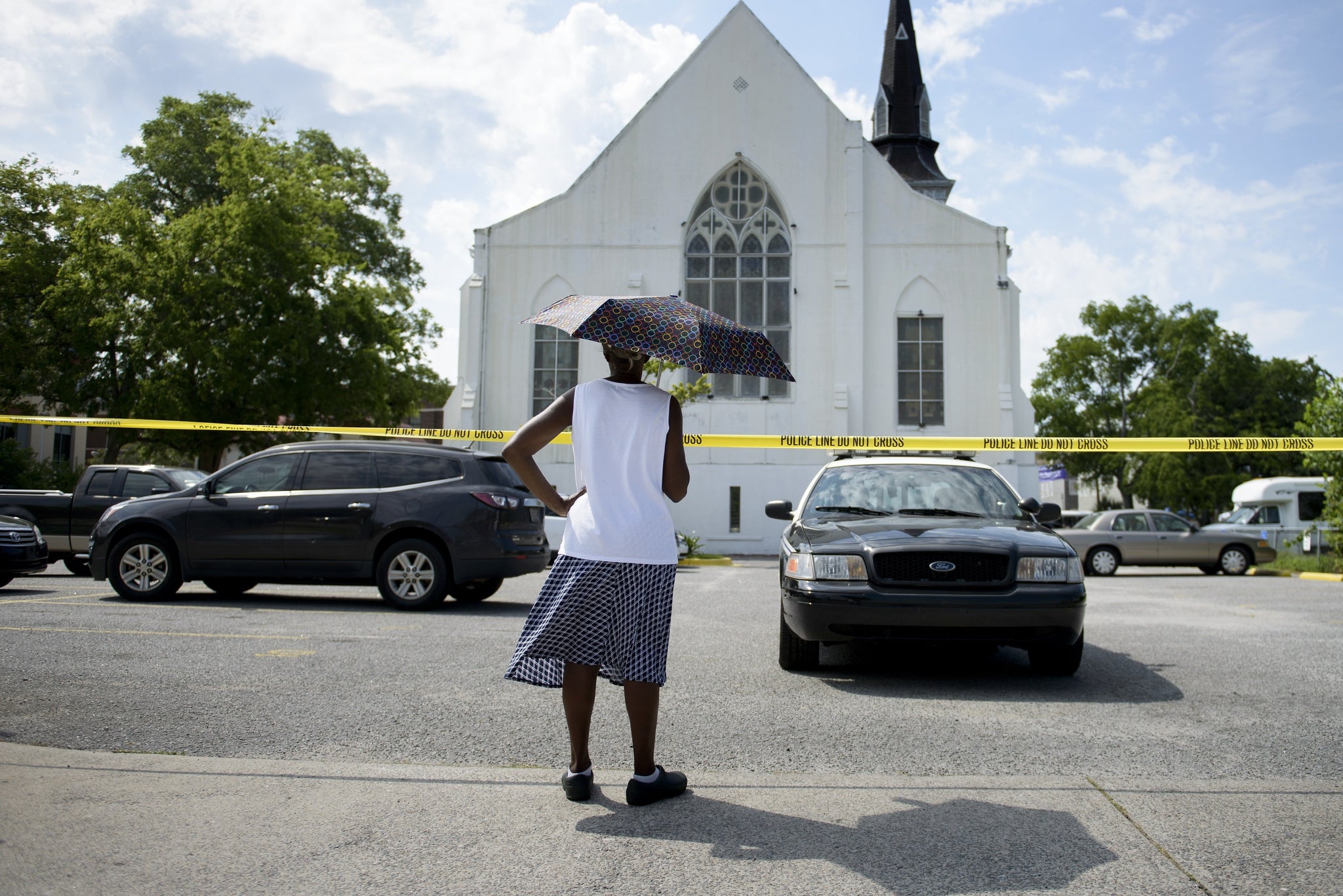'Only white people can save themselves from racism and white supremacism'
It's time to stop making excuses, or we'll never overcome our nation's ugly history.

I am white. I was born and raised in South Carolina, a state to which my grandmother’s family came in the 1600s. They owned slaves. Part of her family were Pinckneys, which means that someone in my family may have owned someone in the family of the Rev. Clementa Pinckney, who was killed in the terrorist attack on Charleston’s Emmanuel African Methodist Episcopal Church Wednesday night.
Those same people who owned his ancestors were likely involved in, or at least aware of, the suppression first of the Stono rebellion in 1739 — which resulted in mass executions and the placement of the severed heads of rebels on stakes on the road outside of Charleston and in the Negro Acts, a tightening of slave laws, including the outlawing of drums. And they were probably also involved later, in 1822, in suppressing the Denmark Vesey rebellion, which was centered around Emanuel. When that revolt failed, the church was burned and Vesey was executed — probably to the relief of my land-holding ancestors.
There were also four white people arrested and executed for their role in Vesey's plot. I can’t help but think that, had there been more of them, the tragic course of South Carolina’s history may have been different, and perhaps we would not have bred terrorists such as Dylann Roof, the alleged shooter.
I’m not saying that it is up to White Saviors to rescue black people. The #Blacklivesmatter movement has produced a number of powerful leaders — and not just famous ones like Deray McKesson and Johnetta Elzie.
In Baltimore, where I now live, I watched as cousins and neighbors of Freddie Gray, the 25-year-old who was killed by police, grew into leaders of an organic neighborhood movement, which is still struggling to improve the community.
But it is up to white people to rescue white people from our own worst selves, from the distorted monsters we have allowed ourselves to become. It is time to stop making excuses.
We have to stop hiding from the truth of race — that this country, and the state of South Carolina in particular, were created on the idea of white supremacy. We’ll never overcome that history unless we acknowledge it.
I spent my childhood in Lexington County, S.C., Roof’s home. I was raised in schools that still talked about the War of Northern Aggression in the 1970s and ‘80s. When we studied the Revolutionary War, we learned about Francis Marion, the “Swamp Fox,” but we did not learn that, despite hosting more battles than any other colony, South Carolina contributed fewer fighters than any other to the Continental Army, because they needed the men to oppress the slave population, partially because of the fear of another Stono Creek.
I was proud of being southern. We were anti-Yankee in the same way that University of South Carolina Gamecock fans are anti-Clemson — vociferous but harmless.
Though some members of my family casually referred to African Americans as “bears,” we were not racist by the standards of a city that flew the Confederate battle flag above the state capitol. We did not use the N-word.
As I got older, I grew my hair long and faced the mild oppression that a privileged white hippy at the height of the war on drugs in the buckle of the Bible Belt would face. I was pulled over and harassed and even taken to jail for having marijuana — but I did not do time, and those arrests did not ruin my life in the way it might have were I not white.
Still, I knew I needed to get out of South Carolina, because it was “backwards,” by which I meant it was racist and sexist and homophobic and full of hate. I left and got as far away as I could and only went back when I absolutely had to.
While Faulkner’s Quentin Compson claimed, “I don’t hate the South, I don’t,” I proudly proclaimed my hatred of my home state, as if that would somehow absolve me of its sins.
Later, I married a woman from South Carolina, and there was a period when we were both writing books that touched on race relations in the state. Mine was about a white sheriff who policed the largely black Beaufort County (just south of Charleston). In reporting it, I saw, repeatedly, the ways that a white minority in Beaufort kept a black majority out of power.
I saw how the Gullah-Geechee people of the Low Country were systematically stripped of the land they’d had since before the end of the Civil War, when Sherman took the Bay of Beaufort in 1863, to ensure they were no longer a majority, and I saw the way that community was oppressed and policed.
Around the same time, I was living near Washington, D.C., and covered South Carolina’s congressional delegation for the Columbia City Paper. It was when President Obama was first elected, and I tried to call out the state’s worst instances of white idiocy — such as Joe Wilson’s “you lie!” But I knew there was so much more than that — it was so bad, that, it seemed from the distance of Maryland, that the only thing to do sometimes was to laugh, knowingly, at my home state.
When we visited, I would hear the casually racist remarks aimed at the president or the “lazy blacks” ruining everything with welfare. So my wife and I often found ourselves arguing with old friends or family members — most of whom, when pushed, swore they were not racist — about the appropriateness of their assumptions or language about African Americans.

And because of the kind of social segregation that has created a sense of apartheid that extends all the way from Charleston up to Baltimore and beyond, they weren’t used to having these assumptions challenged.
On other occasions, I argued far less than I should have. Occasionally, while I was working on the book, someone whose help I needed would make a racist joke about “those people,” and I would, uncomfortably, let out a single chuckle. It was not, I told myself, my job as a journalist to argue with my subjects.
And maybe it wasn’t. Or maybe I was selling out for personal gain. Because I was white, I could let it pass. But because I saw the racism there like a ticking bomb and didn’t fight it hard enough, I failed. I failed South Carolina. I failed the descendants of those people my ancestors enslaved, and I failed myself.
So I and every other white South Carolinian who has let the racist jokes go unchecked, who has looked the other way at some sanctioned act of bigotry, who has not taken the time and effort to listen to what black people have to say about their experience, is, in some sense, responsible for Dylann Roof — even as he remains responsible for his own actions.
Every white South Carolinian who accepts that the Confederate battle flag flies — even today, and not at half-staff — on the state capitol grounds, where it flies over the Confederate War Veterans Memorial, is responsible for Dylann Roof. He is our child. We should have never let him fall into whatever hell he occupied when he decided to go into that church.
Of course, 99 percent of southern whites will never go into a church, sit down with people and then massacre them. But that 99 percent is responsible for the one who does. We white southerners — those of us who left, the others who stayed, and even those millions who have migrated to the Sun Belt — are all Dylann Roof.
We are all responsible. We cannot shirk it. We cannot go forward until we fix ourselves. We must organize ourselves, educate ourselves and come together to fight against white supremacy.
If we don’t, there will always be another Dylann Roof around the corner. And in the mirror.
Copyright: Washington Post
Join our commenting forum
Join thought-provoking conversations, follow other Independent readers and see their replies
Comments
Bookmark popover
Removed from bookmarks